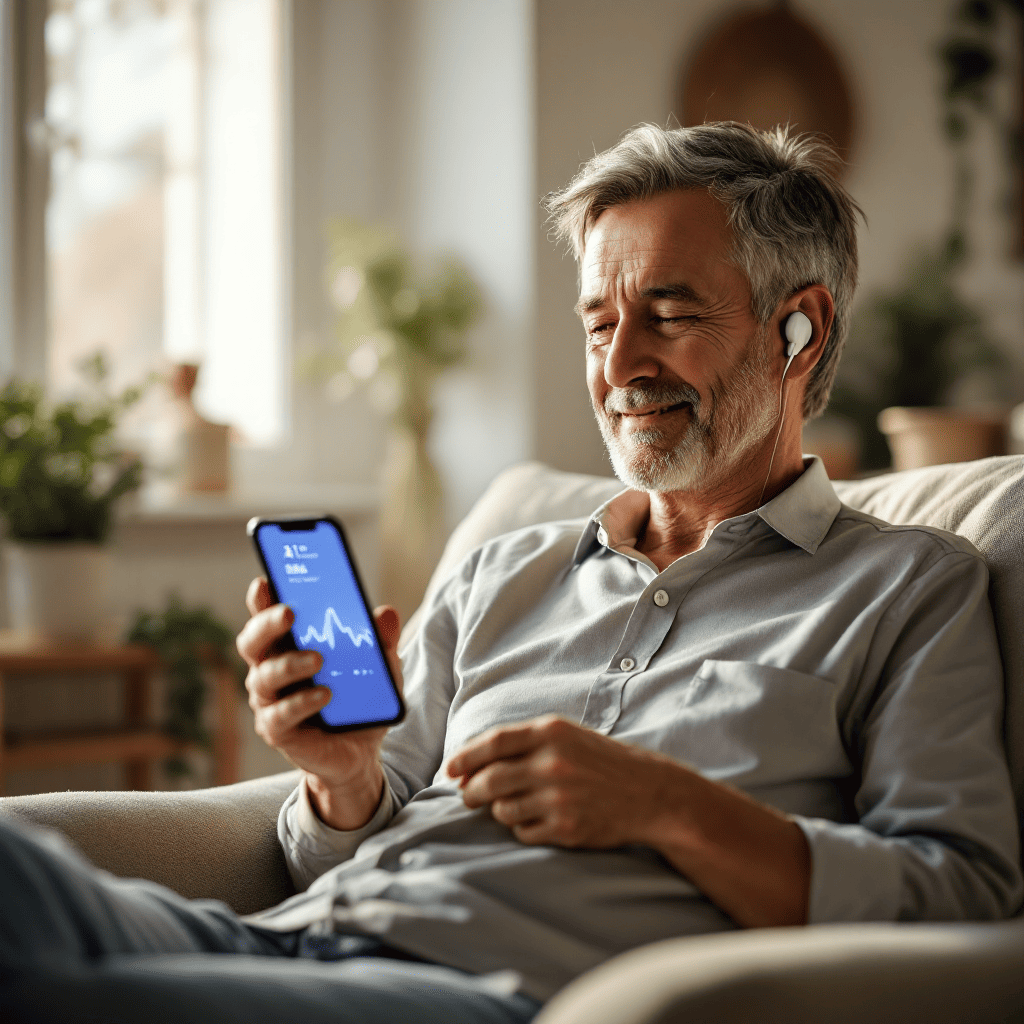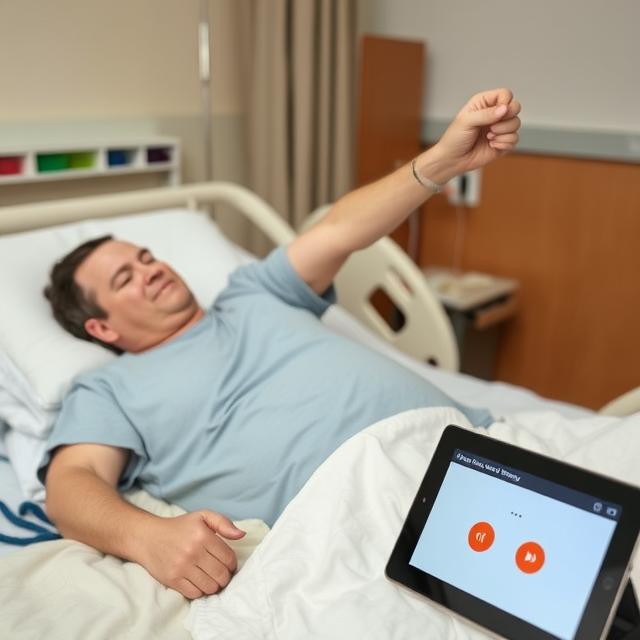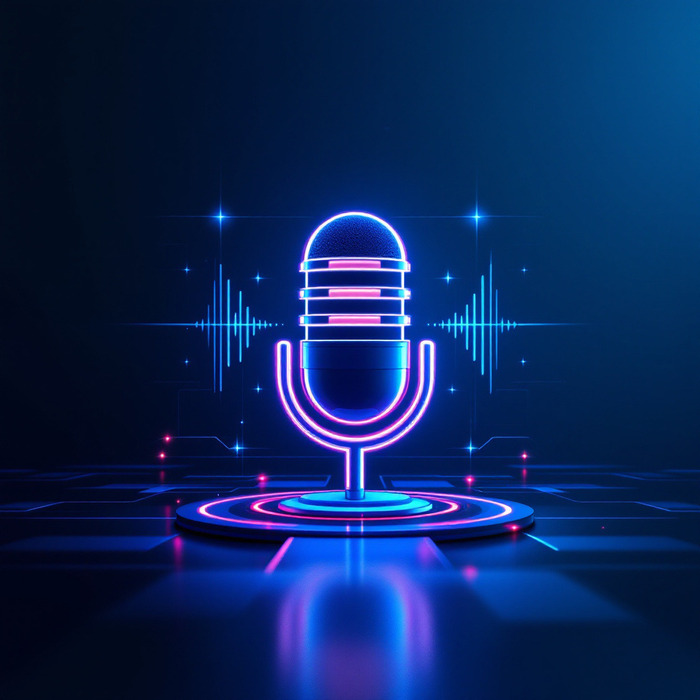
AI TTS for post-treatment recovery is basically just smart software that turns written medical instructions into spoken words for patients after they leave the hospital. This technology is a game-changer for patients who might struggle with reading complicated discharge papers or remembering all those details while dealing with illness or injury.
If there are any other instances of overly casual language in the sections I rewrote, I’d be happy to adjust those as well. The goal is to keep the language simple and conversational without being inappropriately informal for a medical context.
AI Text-to-Speech (TTS) in Healthcare Recovery
AI TTS in healthcare is catching on fast because it solves real problems. Hospitals and clinics are using it to make sure patients actually understand what they’re supposed to do at home. It’s not rocket science – it’s just converting written stuff into natural-sounding speech that patients can listen to whenever they need a reminder.
“The biggest headache after sending patients home is making sure they follow their treatment plans,” says Dr. Sarah Chen, who works in rehabilitation. “Text-to-speech for recovery fixes this by turning those confusing medical instructions into clear voice guidance that anyone can understand.”
Unlike those paper instructions that end up lost or stuck to the fridge, AI TTS for post-treatment recovery gives consistent information in a way that works for everyone – whether they have trouble reading, can’t see well, or just get overwhelmed with all the medical jargon. It’s especially helpful for older folks or anyone who has a hard time focusing because of their condition.

Personalized Audio Messages for Post-Treatment Support
What makes AI TTS for post-treatment recovery truly revolutionary is personalization. Modern systems can tailor messages to each patient’s specific:
- Medical condition and recovery stage
- Medication schedule
- Physical therapy requirements
- Nutritional needs
- Emotional support requirements
Personalized audio messages create a more intimate connection that written text simply can’t match. When a patient hears their name and specific instructions about their unique situation, engagement increases dramatically. Some advanced medical voice assistant platforms can even adjust tone and speaking style based on patient preferences or needs.
“Hearing a calm, encouraging voice remind me about my exercises made a huge difference,” shares Michael, a stroke recovery patient. “It felt like having a personal coach at home.”
The neural voice technology behind these systems continues to improve, with many platforms now offering dozens of natural-sounding voices in multiple languages, accents, and speaking styles. Learn more about the latest AI text-to-speech tools for healthcare here.
Benefits of AI TTS in Patient Recovery Journeys
Research shows multiple advantages when AI TTS for post-treatment recovery is incorporated into care plans:
- Improved comprehension: Patients retain 30% more information when receiving both written and audio instructions.
- Reduced anxiety: Having clear instructions available on-demand helps alleviate concerns about “doing recovery wrong.”
- Higher adherence rates: Studies show up to 40% better medication compliance when using AI audio support.
- Decreased readmissions: Hospitals using AI recovery support systems report 23% fewer emergency readmissions.
- Greater independence: Patients feel more confident managing their recovery at home.
For individuals with conditions like ALS that affect speech and communication, AI voice for patients can be truly life-changing, serving as both a recovery tool and assistive technology. Explore specialized TTS solutions for ALS patients.
AI-Powered TTS for Patient Engagement and Motivation
One of the most challenging aspects of recovery is maintaining motivation over time. AI TTS for post-treatment recovery addresses this by providing consistent encouragement and timely reminders.
How AI voice assists post-treatment recovery goes beyond simple reminders. Advanced systems can:
- Celebrate milestones with congratulatory messages
- Provide educational content about recovery progress
- Offer encouraging words during difficult phases
- Adjust tone based on patient progress and emotional state
“The psychological component of recovery is huge,” notes Dr. James Wilson, rehabilitation psychologist. “Having a voice that sounds encouraging rather than clinical can make all the difference in how patients perceive their journey.”
The voice UX design of these systems is carefully crafted to build trust and rapport. Engineers and healthcare professionals collaborate to create voices that convey the right balance of authority and compassion needed for different recovery contexts.
Real-World Applications of AI TTS in Recovery Programs
AI TTS for post-treatment recovery is already making a difference in numerous healthcare settings:
- Post-surgical recovery: Patients receive timely reminders about wound care, activity restrictions, and pain management.
- Cardiac rehabilitation: Guided breathing exercises and activity pacing delivered via digital recovery aid applications.
- Mental health aftercare: Daily check-ins and coping strategy reminders using consistent, calming voices.
- Physical therapy support: Step-by-step audio guidance for home exercises, with timing cues and form reminders.
Memorial Hospital’s pilot program using personalized TTS audio for post-surgery patients reported 87% patient satisfaction and a 34% improvement in exercise completion rates. Similarly, Valley Rehabilitation Center found that integrating AI TTS in patient rehabilitation platforms reduced therapist follow-up calls by 42%.
Customizing TTS for Different Medical Conditions
Different recovery journeys require different approaches. Advanced AI TTS for post-treatment recovery systems can be customized for specific conditions:
- Stroke recovery: Slower speech rates, simplified vocabulary, and frequent repetition
- Orthopedic rehabilitation: Detailed movement instructions with careful timing
- Cognitive rehabilitation: Clear, concise directions with memory-reinforcing techniques
- Chronic pain management: Soothing voices for guided meditation and pain coping strategies
For patients with dyslexia or other reading difficulties, these audio solutions remove a significant barrier to following medical guidance. Read about AI text-to-speech for dyslexia to learn more about these specialized applications.
The field of speech therapy has particularly embraced this technology, using AI-generated speech models as both guides and goals for patients working to improve their own communication.
Integration of AI TTS with Healthcare Platforms and Devices
For maximum effectiveness, AI TTS for post-treatment recovery must be seamlessly integrated into patients’ daily lives. Today’s solutions offer multiple integration points:
- Mobile apps with scheduled notifications
- Smart speakers for hands-free access
- Telemedicine platforms with embedded audio support
- Wearable devices that provide timely audio cues
- Patient portals with downloadable audio files
“The best healthcare AI tools meet patients where they are,” explains medical technologist Maria Garcia. “Voice technology works because it fits naturally into daily routines without adding complexity.”
Finding the best AI text-to-speech apps for chronic condition recovery depends on individual needs, but the most effective platforms share certain features: intuitive interfaces, personalization options, and seamless TTS healthcare integration with existing medical record systems.

The Future of Voice in Recovery
As technology advances, AI TTS for post-treatment recovery will become even more sophisticated. We’re already seeing developments in:
- Emotion detection that allows systems to respond to patient frustration or discouragement
- Conversational AI that can answer basic questions about recovery protocols
- Voice biometrics that can detect subtle changes indicating potential complications
- Multilingual support for more inclusive care
The human voice has always been a powerful tool for healing and connection. By harnessing AI TTS for post-treatment recovery, healthcare providers are extending their reach beyond facility walls, ensuring that every patient has the support they need, whenever and wherever they need it.
For patients navigating the often difficult path of recovery, these artificial voices offer very real comfort, guidance, and hope.
Sources:
https://pmc.ncbi.nlm.nih.gov/articles/PMC11534522/
https://pubs.asha.org/doi/10.1044/2024_AJSLP-23-00448
Conversational AI tools can provide easy-to-understand responses based on individual patient information and clinical guidelines:

